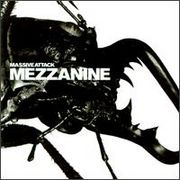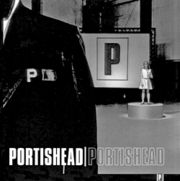| Trip hop | |
|---|---|
| Stylistic origins: | Hip hop, Downtempo, House, Breakbeat, Acid jazz, Reggae |
| Cultural origins: | 1990s Bristol |
| Typical instruments: | Keyboards (especially Rhodes), turntables, samplers, brass, flutes, strings |
| Mainstream popularity: | |
| Derivative forms: | Dream pop |
| N/A | |
| Fusion genres | |
| N/A | |
| Regional scenes | |
| Bristol | |
Trip hop (also known as the Bristol sound) is a term coined by British dance magazine Mixmag, to describe a musical trend in the mid-1990s; trip hop is downtempo electronic music that grew out of England's hip hop and house scenes. Sometimes characterized by a reliance on breakbeats and a sample-heavy sound pioneered by Coldcut's remix of Eric B. & Rakim's "Paid in Full", trip hop gained notice via popular artists such as Portishead, Massive Attack, Thievery Corporation, Tricky, and rock-influenced sound groups such as Ruby, California's DJ Shadow, and the UK's Howie B.
Londoners Morcheeba and Glideascope are also often associated with this sound. The latest additions to this line of performers are Jem and Australia's Spook. The Bristol Sound came out of the wider Bristol Urban Culture scene.
The "trip" in "trip hop" refers to the "out-of-this-world" state following the use of a drug. This provides insight into trip hop's strong connection with the senses. Furthermore, the "hop" in "trip hop" indicates its roots in hip hop.
The style is perhaps typified by Massive Attack's piece "Unfinished Sympathy" which has frequently been described as one of the best songs of all time, according to polls produced by MTV2, NME, and various other magazines and reviewers. [1] A reviewer for the BBC has said that: "More than a decade after its release it remains one of the most moving pieces of dance music ever, able to soften hearts and excite minds just as keenly as a ballad by Bacharach or a melody by McCartney."
Trip hop originated in the 90's in Bristol, England, during a time when American hip hop was taking over Europe's music industry. British DJs decided to put a local spin on the international phenomenon and developed hip hop into a different style, marking the birth of trip hop. The originators in Bristol developed hip hop with a laid-back beat (down tempo). Bristol hip hop (trip hop's predecessor) is characterized by the emphasis on slow and heavy drum beats and a wide open sound that draws heavily on acid jazz, Jamaican dub music and electronica. Massive Attack's first album "Blue Lines" in 1991, is often seen as the first manifestation of the "Bristol hip hop movement" (known as the "First Coming of Bristol Sound"), but in fact Massive Attack drew heavily on the pre-existing British hip hop scene, and their sound is remarkably similar to that pioneered earlier by Marxman, an Irish-Jamaican hip hop crew that was popular in the UK in the 1980's.
1994 and '95 saw trip hop near the peak of its popularity. Massive Attack released their second album entitled "Protection." Those years also marked the rise of Portishead and Tricky. Portishead's female lead singer Beth Gibbons' sullen voice was mixed with samples of music from the '60s and '70s, as well as sound effects from LPs, giving the group a distinctive style. Tricky's style was characterized by murmuring and low-pitched singing. Artists and groups like Portishead and Tricky led the second wave of the Bristol Movement (a.k.a. "Second Coming of Bristol Sound"). This second wave produced music that was dreamy and atmospheric, and sometimes deep and gloomy. The British press termed this style of music "trip hop," referring to this evolved style of hip hop.
Incidentally Massive Attack, Portishead and Tricky actually had a common history. Massive Attack's three members used to work with Tricky, under the group "The Wild Bunch" (headed by Nellee Hooper in 1982), explaining why many Massive Attack songs feature Tricky. Portishead member Geoff Barrow also previously helped produce Massive Attack's "Blue Lines."
Contents |
The Bristol sound
 Massive Attack's Mezzanine album cover.
Massive Attack's Mezzanine album cover.
The Bristol sound was the name given to a number of bands from Bristol, England, in the 1990s. These bands spawned the musical genre trip-hop, though many of the bands shunned this name when other British and international bands imitated the style and preferred not to distinguish it from hip hop.
It is characterised by a slow, spaced-out sound that a number of artists in the early and mid 1990s made synonymous with the city. These artists can include the aforementioned original Bristolians Massive Attack, Portishead and Tricky and others such as Way Out West, Smith and Mighty, Up, Bustle & Out, and The Wild Bunch.
The Bristol Sound was part of the wider Bristol Urban Culture scene.
Post trip hop
Early Trip-Hop lacked diversity and variety, as the genre was in its early stages of development. As electronic music became developed and pioneers like Massive Attack, Portishead and Tricky released new albums in '94 and '95, a new generation of trip hop artists emerged. "Post trip hop" artists included Morcheeba, Alpha, Mono, The Aloof, Glideascope, Cibo Matto, etc. These artists integrated trip hop with Ambience, R&B, Brit-Hop, Breakbeat, Drum 'n' Bass, Acid Jazz, New Age, etc. Furthermore, vocals expanded beyond melancholy female voices. Eventually trip hop developed into a diversified genre that was no longer limited to the "deep, dark style" of the early years, eliminating the original impression of trip hop as "dark and gloomy."
Abstract hip hop
 Portishead's Portishead cover.
Portishead's Portishead cover.
James Lavelle, founding member of UNKLE and owner of the famous trip hop label Mo'Wax used to say, "British hip hop lacks the lyrical skills of U.S. counterparts, but British kids have got the musical side." This offers insight as to why trip hop artists like DJ Shadow, DJ Krush, and DJ Cam often choose to strip out vocals in their works. The absence of vocals produces an effect that emphasizes the intrinsic nature of the music, allowing the listener to step into unknown territory (just like viewing an abstract painting). Though this style of music is coined "trip hop," many artists (including DJ Shadow) frown upon this term, disagreeing with the interpretation. DJ Cam calls this style of music "abstract hip hop."
Musicology
Trip hop is known for its moody, dark, yet lyrical sound.
The trip hop sound relies on jazz samples, usually taken from old vinyl jazz records. This reliance on sampling has changed the way record labels deal with clearing samples for use in other people's tracks. Trip hop tracks often sample Rhodes pianos, saxophones, trumpets, and flutes, and develops in parallel to hip hop, each inspiring the other.
Trip hop production is historically lo-fi, relying on analog recording equipment and instrumentation for an ambiance. Portishead, for example, record their material to old tape from real instruments, and then sample their recordings rather than recording their instruments directly to a track. They also tend to put their drums through considerable compression.
Later artists have taken inspiration from many other sources including world and orchestral influences.
External links
| Hip hop/Rap |
| Beatboxing - DJing (Turntablism) - Fashion -History (Roots - Old school - Golden age - Modern) - Production - Rapping |
| Genres |
| African - American (East - West - South) |
| Abstract - Alternative - Chopped & Screwed - Christian - Country-rap - Crunk - Electro - Freestyle music - Gangsta - G-funk - Ghettotech - Golden age - Hardcore - Hip hop soul - Hip house - Horrorcore - Hyphy - Instrumental - Jazz rap - Latin rap - Mafioso - Miami bass - Mobb - Neo soul - Nerdcore - New jack swing - Old school - Political hip hop - Pop rap - Rapcore - Ragga - Reggaeton - Snap music - Urban Pasifika |




 216.73.216.133
216.73.216.133 User Stats:
User Stats:
 Today: 0
Today: 0 Yesterday: 0
Yesterday: 0 This Month: 0
This Month: 0 This Year: 0
This Year: 0 Total Users: 117
Total Users: 117 New Members:
New Members:
 216.73.xxx.xxx
216.73.xxx.xxx
 Server Time:
Server Time: